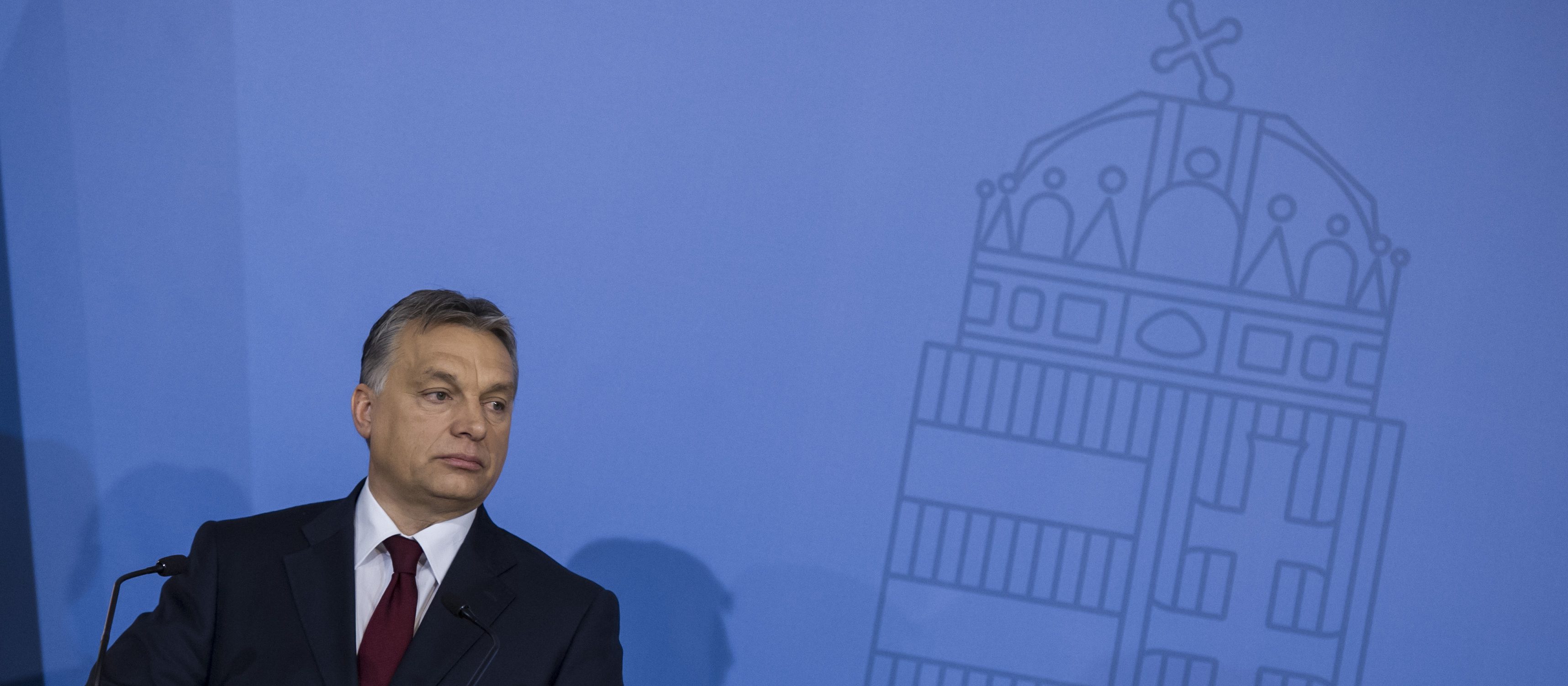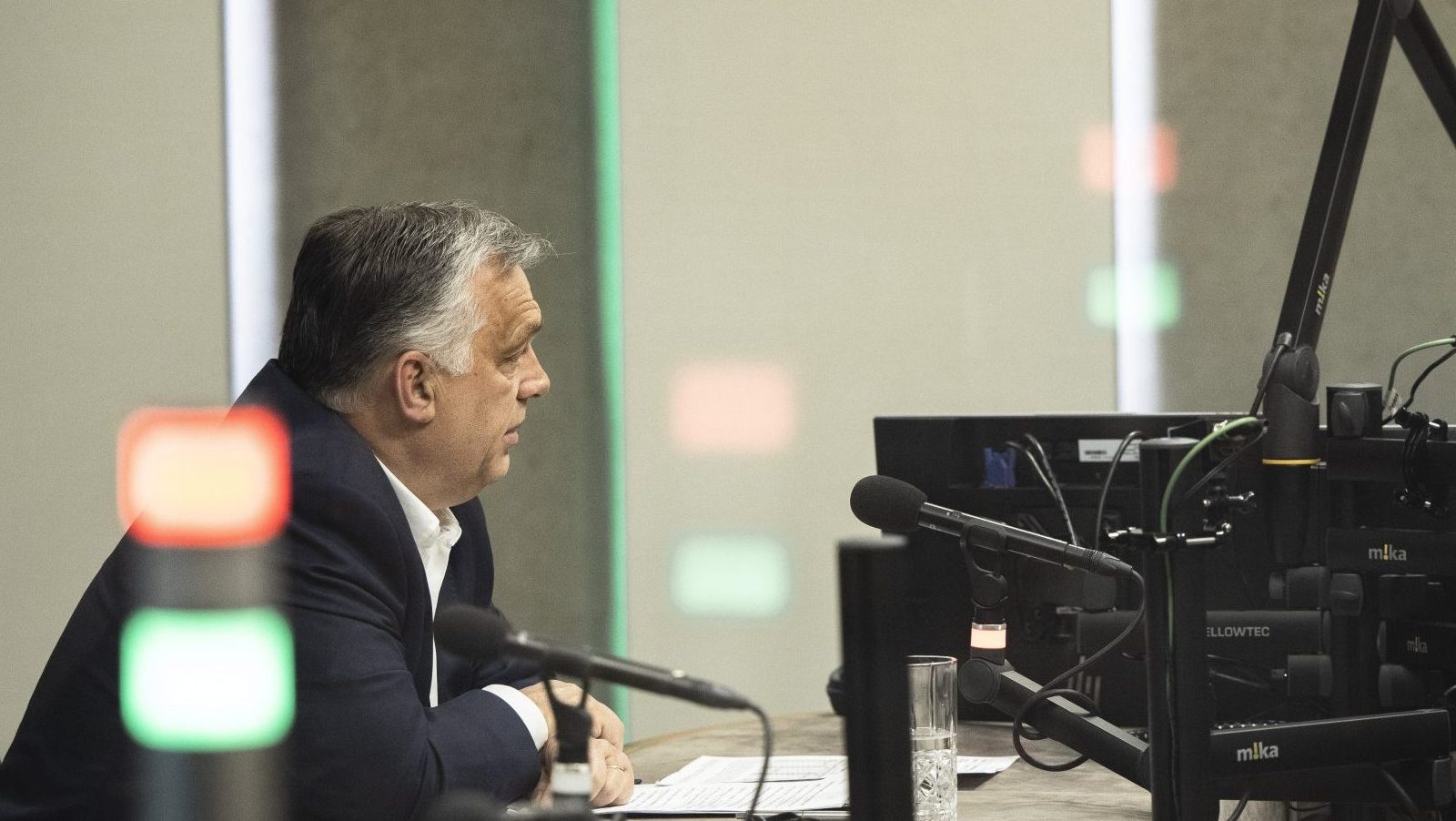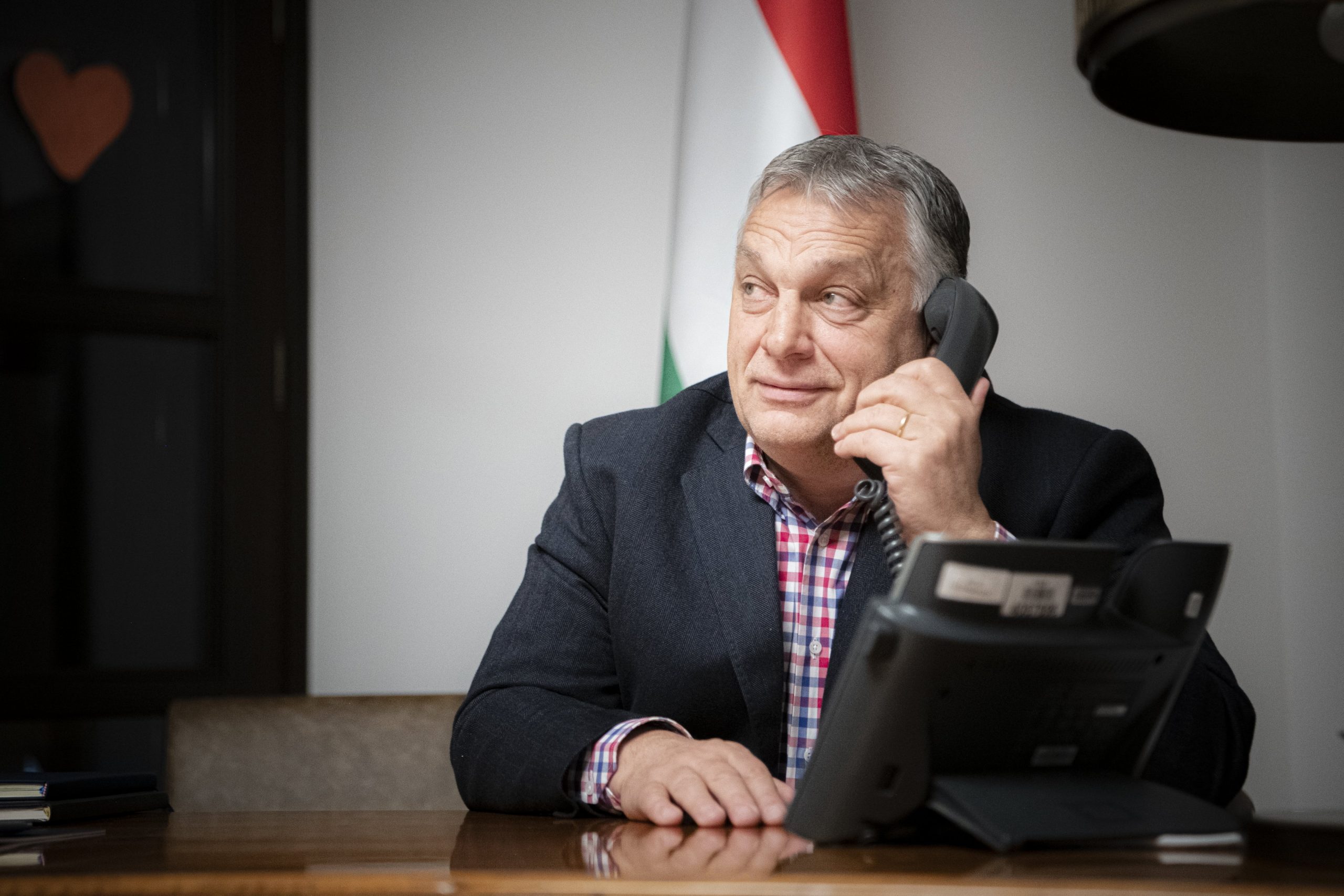
Mr. Orbán said that this holiday season is different, because it is unprecedented to have “Christians murdered in the heart of Europe at Christmas”, adding that “Germans have our deepest condolences and sympathies”.
“It is clear that nothing related to the issue of migration can remain as it was: Brussels must change. People who have entered Europe illegally must be transported back, the borders must be protected and the inflow must be stopped”, he said. He remarked that a year ago nobody would have believed that the United Kingdom would leave the European Union, or that in America the “Clinton clan, the party of traditional left-wing American intellectuals” would fall from power.
He stressed that in fact there is a rebellion in progress in the world’s two model democracies, the trend will continue, and 2017 will be the “year of rebellion” in many European democracies. The reason Hungary is an “island of stability” in a troubled Western world is that “in both 2015 and 2016 we asked the opinion of the people, and protected the country against illegal immigration”.
Mr. Orbán agreed with the suggestion that one of the reasons for the “rebellions” is that “the fundamental idea of the American dream” – that everyone is independently able to improve their own lives – “is coming to an end”.
“The European dream is also over”, he added, indicating that while Western Europe previously needed to decide on how to distribute extra funding for welfare, a feeling of “austerity” is now the norm.
He also said that Western Europe has been accepting immigrants for decades, but that their integration is “clearly a failure”. He observed that “People in many Western European cities no longer have a sense of security, crime is on the rise and there is an increasing risk of terrorism, which is shaking the self-confidence and self-esteem of the Western world”.
In summary, Mr. Orbán said that, as leaders are unable to find a solution to this, the Western world is feeling the combined effects of the economic slowdown, crime, terrorism, migration, an inability to make decisions and insincere words. According to the Prime Minister, “we are a people of Eastern ancestry, but we belong to the Western world”.
Accordingly, the country has an interest in the success of a West and of a Europe “which does not want to transform us, but which accepts – and in fact respects – the fact that we are Hungarians, and will remain Hungarian”. Hungary does not need to adopt everything from Western Europe and must say a firm “no” to everything which is bad. Hungary will also say “no”, he declared, when Brussels attempts to make Hungary abolish reductions in household utility charges.
“The most important goal for 2017 is to make it worthwhile for everyone in Hungary to work”, he stressed. “As long as people are struggling only to have a job and to maintain their families, they cannot feel like winners. When people begin to earn more and see that it is worth working, they realise that they are citizens of a winning country”, the Prime Minister said, adding that the Government is reducing the burdens on employers, to enable them to increase wages.
“I am a ‘cautious firebrand’, and I plan in a conservative manner”, Mr. Orbán said, because that means financial and economic security for the country. Therefore, he said, all he can promise for certain is that next year the country “will continue on an unbroken path of development”. He added, however, that the country could easily perform even better than expected, and that in 2017 everyone could take a bigger step forward than indicated by the current conservative estimates.
“For decades we were conditioned to believe that the Hungarians are a people doomed to failure”, he said. “Many people still believe that if something happens in the world it will be bad for Hungary, and if something good happens to the country then it is just a matter of luck. Changing this way of thinking is our greatest task”, he added. “We do not want to live in a losing country, or as members of a losing nation. Our goal is to make Hungary a winning country”, he declared.
When asked whether reforms in health care and education are coming to a standstill, Mr. Orbán said that in fact the reverse is true, citing as examples that “Seventy-one hospitals have been renovated or refurbished, twenty-three new medical centres have been built, and doctors and nurses will continue to receive pay rises in 2017 and 2018”.
He added that “Teachers have received a fifty per cent pay rise, and instead of closing schools, new ones are being opened”, stating that “All this is a major step forward compared to the fact that, between 2006 and 2009, schools and hospitals were closed, and ‘as a leaving present’ the last socialist government took away a month’s salary from both teachers and healthcare sector employees”.
Speaking about continual accusations of corruption from his opponents, Mr. Orbán said that such accusations of corruption have become a common tactic for discrediting political adversaries. If someone rejects claims of corruption, he said, “that in itself lends credibility to claims that in fact they must be true”. It should be made clear that “we shall not tolerate the abuse of power”, he said. He recommended that both those in government and in opposition “abide by the law, and then there will be no problems”.
As the country develops, corruption will decline, he said, and this is why there is funding for increasing pensions, supporting families and supplying children with free school books. “I shall not tolerate money being stolen”, he emphasised.
Speaking about the nomination for head of state, the Prime Minister said that János Áder is held in great esteem by Fidesz and, if he agrees, he will be nominated for the post again. “The President’s composure, and his calm and balanced demeanour is needed – in both domestic and international politics”, he added. He also said he is not planning any cabinet reshuffles during his current term in office.
According to the Prime Minister, the strength of Christianity is shown by the fact that Christmas also touches the hearts of people who have become separated from their religious roots.


